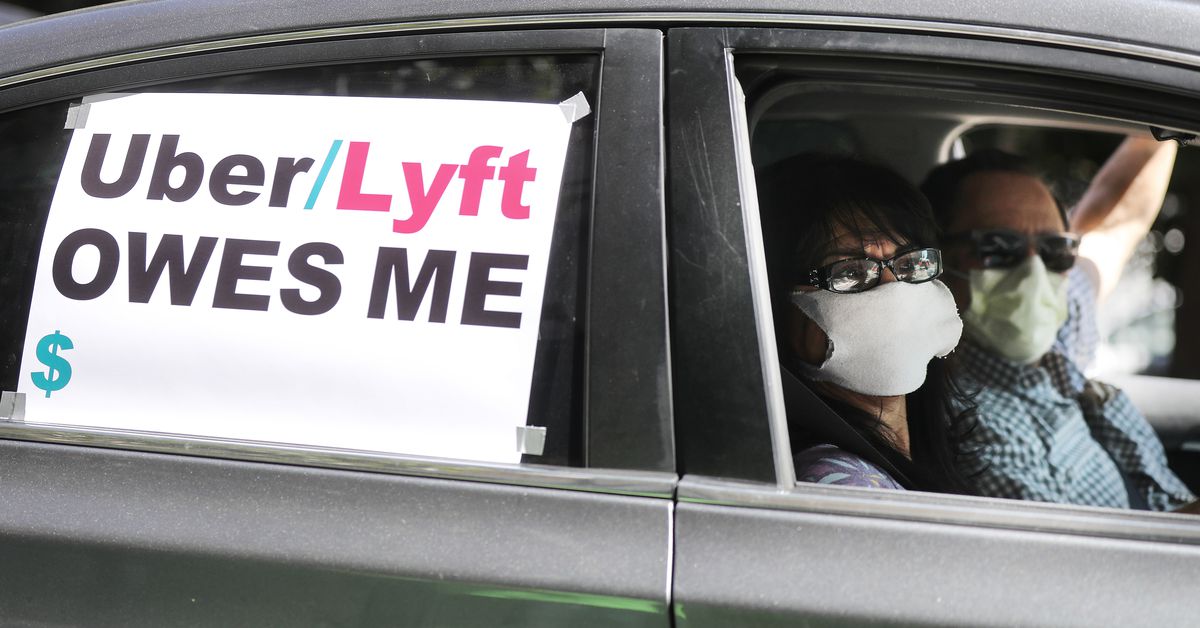
California is seeking to force Uber and Lyft to reclassify their drivers as employees, in a dramatic escalation of the state’s months-long war with the gig economy companies.
In May, California Attorney General Xavier Becerra, along with city attorneys of Los Angeles, San Francisco, and San Diego, sued Uber and Lyft, arguing that their drivers were misclassified as independent contractors when they should be employees under the state’s AB5 law that went into effect on January 1st.
Now, Becerra plans to file a motion for a preliminary injunction that would compel the ride-hailing companies to reclassify drivers as employees within weeks, according to the San Francisco Chronicle. A spokesperson for Becerra didn’t immediately reply to a request for comment.
“Californians who drive for Uber and Lyft lack basic worker protections,” California Attorney General Xavier Becerra said in May. “Sometimes it takes a pandemic to shake us into realizing what that really means and who suffers the consequences.”
AB5, which was signed into law by California Gov. Gavin Newsom on September 18th, enshrines the so-called “ABC test” for determining whether someone is a contractor or employee. Legal experts agree the law will make it more difficult for gig economy companies like Uber, Lyft, and DoorDash to classify their drivers and couriers as independent contractors. And the companies have argued that the law represents an existential threat to their business models.
The companies have argued that the law represents an existential threat to their business models
Uber and Lyft accused the attorney general and his allies of trying to shut down ride-hailing in the state. They argued that if Becerra is successful, hundreds of thousands of drivers could be out of work, costs would rise, and riders who depend on Uber and Lyft’s service would be left stranded.
“The vast majority of drivers want to work independently, and we’ve already made significant changes to our app to ensure that remains the case under California law,” an Uber spokesperson said. “When over 3 million Californians are without a job, our elected leaders should be focused on creating work, not trying to shut down an entire industry.”
A Lyft spokesperson argued that California’s voters should decide the issue. The company, along with Uber, Instacart, and DoorDash, is funding a $90 million effort to pass a ballot initiative in November to counteract the effects of AB5.
“We believe the courts should let the voters decide,” the Lyft spokesperson said. “Trying to force drivers to give up their independence 100 days before the election threatens to put a million more people out of work at the worst possible time. It would be incredibly harmful to millions of people and the California economy to grant this motion 100 days before the voters decide, and we will oppose this motion.”
The gig companies were preparing this ballot initiative as a contingency plan even before Newsom signed the bill into law. The hope was that after striking out with lawmakers and labor groups, the companies could win a reprieve by appealing directly to voters.
The ballot measure would override AB5 by classifying ride-hail drivers and other gig economy workers as independent contractors. According to Ballotpedia, it would also enact labor and wage policies for ride-hail drivers, including a net earnings floor based on 120 percent of the state’s or municipality’s minimum wage and 30 cents per mile; a limit to the hours permitted to work during a 24-hour period; healthcare subsidies; occupational accident insurance; and accidental death insurance. The ballot measure would also require the companies to develop anti-discrimination and sexual harassment policies.
“This is yet another malicious legal action against drivers that underscores exactly why we’re pursuing the ballot measure,” said Stacey Wells, spokesperson for the Uber-and-Lyft funded group.
Meanwhile, pro-AB5 driver groups are planning to protest outside Uber CEO Dara Khosrowshahi’s San Francisco home to protest the ballot initiative and call attention to the company’s alleged discrimination against customers from non-white neighborhoods.
